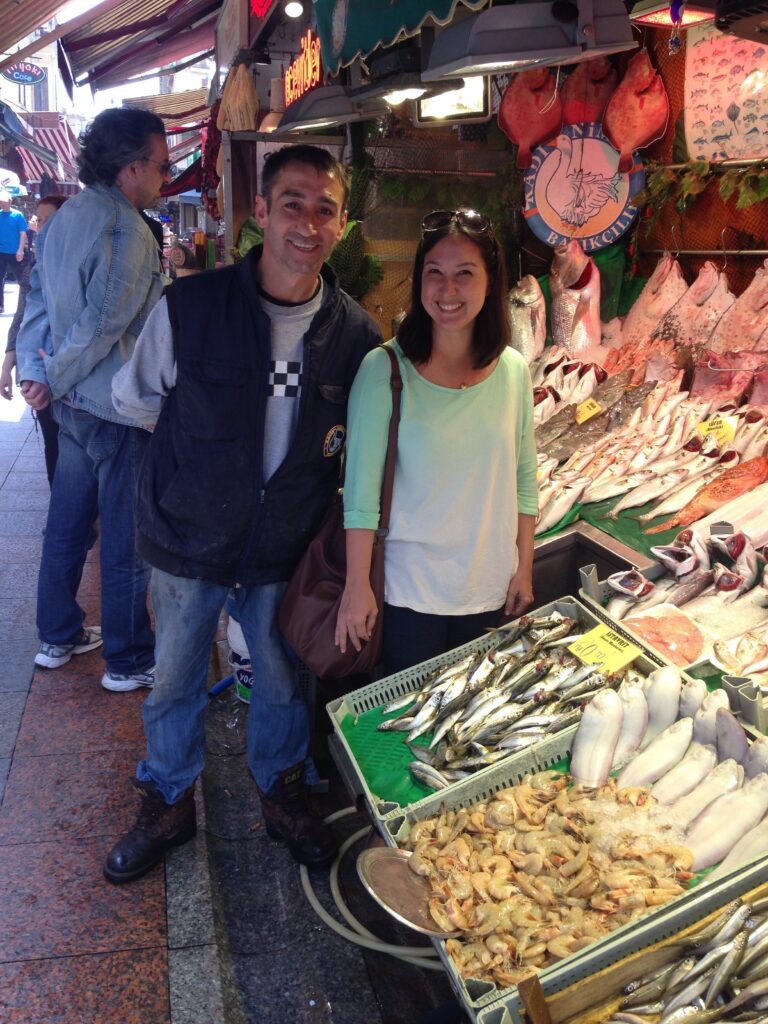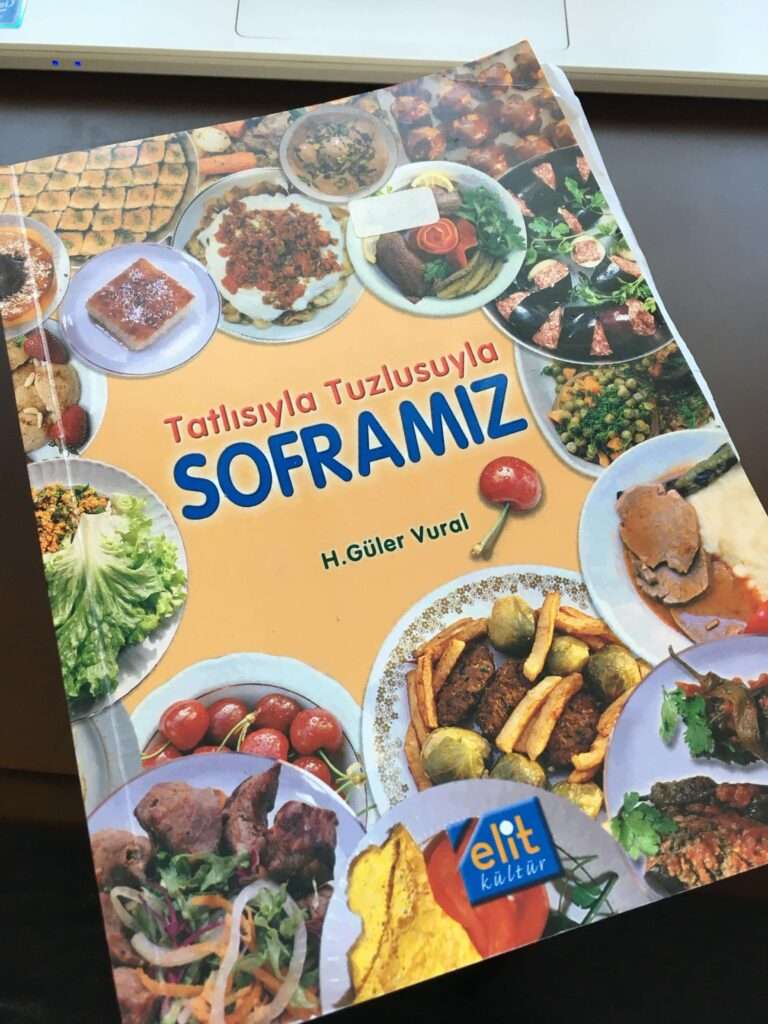Language Learning for Travel: Tips, Tools and Strategies
This post may contain affiliate links, meaning I receive commissions for purchases made through those links at no cost to you. Please read my full disclosure for more information.
Table of Contents
I’ve always been fascinated by foreign languages and different cultures. When it came time to choose a language to study in high school, I couldn’t decide—so I chose to study both Japanese and French!
I’ve traveled to 43 countries now, and even when I’m taking a short trip to a place where English is not the first language, I love to memorize at least a few basic phrases in the local language. It helps me get excited about my trip and builds context to experience more while I’m there.
These days, it’s easier than ever to surround yourself with the language and culture of distant lands using tools like streaming services, online videos, apps, and even AI.
I’ll share a few of my favorite strategies that you can use for your next trip, regardless of its length or purpose.
Ready? Let’s go! ✈
4 Reasons to Level Up Your Language Studies Before a Trip
Build Excitement
Listening to music or watching popular shows from your destination can build excitement and cultural context before you even leave home. It helps you get used to the sounds of the language and introduces you to common words and expressions – including slang and filler words.
Meaningful Experiences
Connecting your language learning to something you’re passionate about makes it more relevant and rewarding. For me, food is a gateway to connection and learning. I love seeking out food bloggers or chefs and watching cooking videos to get excited about the dishes I want to try. (Not to mention learning how to pronounce them!)
Connect on a Deeper Level
Even learning basic greetings or how to say “thank you” shows respect for the host culture of your destination. It demonstrates that you’ve made an effort instead of assuming English will be universally spoken and can be a nice icebreaker in your interactions with others.
Have Fun 🥳
Learning a language before a trip is different from studying in school—you’re not preparing for a test, and no one will give you a gold star for your perfect grammar. Allow yourself to speak, even if you make mistakes. Learn to laugh at yourself, and you’ll have great stories to share later!

Ways to Study a Language Before You Travel
How you study is going to depend on what your goals are and also, how much time you have!
📆 If You Have 6 Months or More
If you have the time and motivation to learn a language before your trip, you’ll have plenty of options.
- One-on-One Lessons: Consider booking a lesson with a native speaker. As an online ESL teacher, I often help students prepare for real-life scenarios like ordering coffee, checking into hotels, or shopping for souvenirs.
- Courses: If you’re interested in proper sentence structure and grammar, you might take a course. Check out more than one teacher and be sure you enjoy their teaching style. Just remember: your goal is connection, not perfection. Focus on practical phrases you’ll use during your trip.
- Gamification: Add gamification to keep language practice fun! I like using apps like Duolingo to learn the basics, such as the alphabet or common patterns, a few weeks before traveling and just to be sure I spend a few minutes on language learning each day.
📆 If You Have One Month or More
With a month to prepare, you can focus on immersive activities:
- Streaming Services: Use Netflix’s language filter to watch shows in your target language with English subtitles, but remember that in real life you won’t be able to read subtitles – don’t let this become a crutch! The goal is not to learn or understand every word perfectly, but to get comfortable listening despite not knowing everything. Pay attention to repeated words, filler phrases, and common expressions.
- News and Podcasts: Read headlines or listen to content in your target language. Having some background knowledge of the topic in your native language can help you to connect the dots.
📆 If You Have One Week
If you’re short on time, prioritize listening to familiarize yourself with the language’s sounds. You’ll be surprised how much you can pick up by listening to music, podcasts, or watching shows in your target language.
✈ If You’re Out of Time at the Airport…
Didn’t have time to study before you left? No worries!
- Google Translate: Download the offline dictionary for your target language.
- eSIMs: If you’ll have data abroad, consider an eSIM to use maps and translation tools on the go.

Bonus tip: Using ChatGPT with Language Study Before Your Trip
Did you know you can use ChatGPT to create your own personalized phrasebook?
- Customize Your Needs: Tell it the purpose of your trip and your current language level. Ask it to generate phrases for situations like taking a taxi, checking into a hotel, or shopping at a market or to walk you through situations you think you might encounter
- Phonetic Pronunciation: Request phonetic spellings of each word or phrase for easier practice.
- Refining Skills: Use ChatGPT to correct your written attempts or refine communication in languages you’ve already studied. Ask it to explain changes to improve understanding.
Pro Tip: Treat ChatGPT like your assistant, refining its suggestions until you get the perfect resource for your needs.
Conclusion
The next time you’re planning a trip abroad, why not start the excitement early by immersing yourself in the local language? You’ll be surprised at how enriching it is to bring more language into your daily life at home and how much fuller your understanding of the world becomes when you can experience it through other languages.
Have fun, and happy travels!
Want more ways to continue your language journey?
- Free 5 day Email Course: Sign up for a FREE 5-day language challenge
- Join our language learner community: Connect with other language learners in our Facebook Group.
📣 Attention Europe travelers!!
Did you catch this year’s D.I.Y. Trip Summit?
The event featured 25+ expert presentations and interviews over three days to help you plan your dream Europe trip in 2025.
My presentation was about Language Learning to Jumpstart Your European Adventure. ✈
You can get access to all the presentations plus exclusive discounts and resources from the speakers by getting the First Class Pass.

